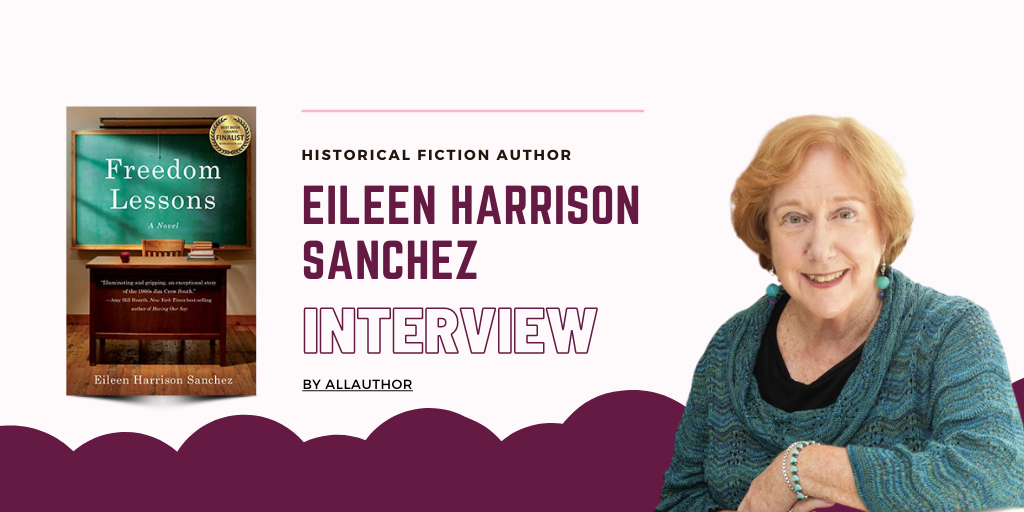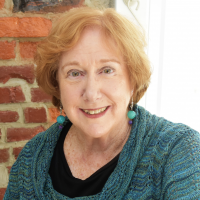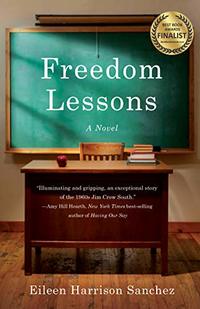Where were you born? How did your childhood inspire your writing?
St. Louis, Missouri is my birth place by the chance that my parents lived there for my father’s job. We moved to NJ where I have lived since. I was always an avid reader from a very young age. Starting with short stories in an illustrated book of saints and progressing to books in a series, biographies, and historical fictions. I’ve always loved reading and visiting the stories that others have written for inspiration, education and entertainment.
Which is your favorite childhood memory?
One of my earliest memories, therefore it must be a favorite, is receiving a hardcover copy of Bambi with an illustrated dust jacket. It was a Christmas gift from my parents. I learned to sight read before I started school, not sure how. I’m not a great speller. But I didn’t understand that you were supposed to read the chapters in order. My mother explained and I read that book over and over. I still have it.
How would you describe your forty-year career in education?
My career was a wonderful gift to my life. I became a teacher during the time that women didn’t have many choices but I always knew I wanted to teach. I was the first in my family to graduate from college, my parents were high school graduates, their parents were grade school graduates at best. Being given the responsibility to teach children to read was a joy and a mission. I searched for solutions to help students who were challenged by this essential life requirement. Eventually I became a specialist and an evaluator in learning disabilities and worked with and then supervised other teachers with the same mission.
How was your early experience as a district administrator?
The hierarchy of a school district is challenged by power and authority. Teachers have a lot of power; they control the learning programs of hundreds of students in their lifetime. They also have a great deal of insight about what works best. If they identify a program or a method that will help them do their job better, they can’t just adopt it. The teacher must convince the administrator who has the authority to propose those changes. That’s why I became an administrator to have the authority to help teachers to implement changes that I also believed in. It was very hard work but also rewarding and I met my goal to achieve at that level of authority. I lost the direct contact I loved with a classroom of students, but I believe I had a greater impact at the end of my career.
How did you begin your musing as A Perennial Writer's Thoughts?
I never intended to write a blog. When I finished writing FREEDOM LESSONS, I started to build my platform and my website. I had a perfect place to post essays that I wrote. Writing is thinking for me. I’ve learned to trust myself realizing that the first draft is just that and always needs more work. But sometimes a short piece helps me to think and actually doesn’t need a lot of revising. And the blog A Perennial Writer’s Thoughts gave them a place to rest until a reader finds them.
What inspired the story of your book, Freedom Lessons: A Novel?
It’s a fictionalized version of the year I spent teaching in a rural Louisiana town in 1969-1970. Ten years ago, I was at a professional educational conference in New Orleans, LA. After a long day of presentations, we went out to Pat O’Brien’s, a great bar in the French Quarter. If you ever visit NOLA be sure to go there to have a Hurricane and request your favorite song to be played by the dueling pianos. In between the drinks and entertainment, I surprised the people I was with when I told them I had taught in a small rural town in Louisiana that closed the black school overnight on November 4, 1969. I have since learned the importance of that date. It followed the October 29, 1969 Alexander v Holmes Supreme Court decision which ordered schools across the county to desegregate. I had rarely shared that experience. I explained how a 22-year-old young woman from NJ wound up in the middle of the poorly planned desegregation of the public schools. My husband was in the Army and we lived there for the last year of his service.
What challenges did you face while setting "Freedom Lessons" in a rural Louisiana town in 1969?
The biggest challenge was that the story was forty years old when I started to write it. It started out as a memoir but as I wrote it I realized that I wasn’t telling the complete story and I wanted to know the facts, the history of the time and the area. I also wasn’t a writer, a story teller and I decided to take a workshop on writing. The teacher of the workshop asked us to write a scene we had already written from another point of view. I chose to write in the voice of a high school student experiencing the same sudden school closure. After that the memoir developed into historical fiction from three points of view. Of course, the biggest challenge was that two of the characters were Black and I am not. The voices of the Black characters came from a tremendous amount of research, fiction and non-fiction books, newspapers and magazines of the time, headlines from national and local papers, and several dissertations but most importantly one titled “Even the Books Were Separate”. Related to the challenge of writing in the voice of “other”, I asked two Black authors to read and edit the story. They made some suggestions and I made changes but mainly they felt that I captured the Black perspective fairly.
What have you learned about yourself since you became an author?
That you are never too old to try something new and perhaps find a new career. I’m a debut author in my seventh decade and I have expanded my writing community from one writing group to a vast community of authors and readers.
How did you come up with the character of Colleen, an idealistic young white teacher?
Colleen tells my story as a young teacher. Her story is exactly what I experienced yet fictionalized to intersect in the points of view from Frank and Evelyn. Their characters are based on facts gleaned from my research, but I didn’t know them personally. They don’t represent real people that I knew.
How important do you think book covers are? Who usually designs your book covers?
Book covers are more important than ever. Readers are drawn to a book by it cover, title and layout. And all that has to work in miniature postage size image on social media or on someone’s phone. A professional cover designer is very important. They know what will catch a reader’s eye and how to balance the image with the title. Color, font, and image must work together.
How do you make sure to draw readers into your stories?
The first pages must draw the reader in. Pacing is important, relatable characters, building characters that readers care about, all of these are the parts of the story that I focus on. But one thing to keep in mind is that every book will find it’s readers but not every book is for every reader.
What is your writing dream? How close do you think you are to achieving it?
To have published my story.
I’m there, it’s all the icing on the cake now.
How do you maintain that equilibrium between writing what you want and what your readers want?
I have to write what I want to write; readers have ideas and I must respect what they like about how I write or what I write about.
Which is the next book you're working on?
Connected to the last question, I’ve come to an agreement with reader suggestions. Many readers want to know what happened to the characters in FREEDOM LESSONS, it was deliberately left open ended and it’s up to the reader to surmise what could have happened. It also makes for good conversation in a book club to discuss the probable progression of their story. My next book is very much in the early stages but one of the characters will appear in another story as a younger character.
On a scale of 1-10, what would you rate All Author? What are your thoughts on All Author and its services?
Definitely “10”. As the debut author of FREEDOM LESSONS I had a lot to learn about Social Media. All Author has been wonderful! First by providing weekly posts to Twitter. And BEST - easy to follow steps to create my own GIFs to feature my reviews that I can post anywhere. I have my own tech team working to promote my book each week. Very affordable and very effective. Thank you, All Author!







